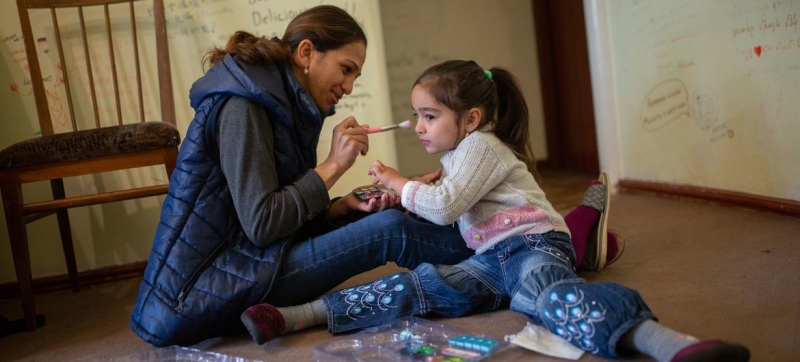
Games promote children’s development. In the photo: mother and daughter in Armenia UNICEF: Nearly 400 million children under five experience harsh punishment at home Culture and education
Nearly 400 million children under age 5, or 60 percent of all children in this age group, regularly experience psychological abuse or physical punishment at home. This is reported by the authors of a new study by the United Nations Children’s Fund (UNICEF). They note the important role of care and play in the development and mental health of a child.
Care and play
The publication of the report is timed to coincide with International Game Day, which is celebrated for the first time this year. “When children experience physical or verbal abuse at home, or when they are deprived of social and emotional care from loved ones, it can undermine their sense of self-worth and hinder their development,” said UNICEF Executive Director Catherine Russell. “When a child is cared for and played with, parenting brings joy, helps children feel safe, learn, develop skills and navigate the world around them.”
Prohibition of physical punishment
More and more countries are banning physical punishment of children. More than half of the 66 countries that have banned the practice have passed laws within the past 15 years. However, nearly half a billion children under the age of 5 remain without adequate legal protection.
Harmful Social Norms
Harmful social norms that underlie violent methods of raising children persist throughout the world, with one in four mothers or caregivers believing that physical punishment is essential to raising a child.
Lack of attention
Approximately forty percent of children aged 2-4 years do not receive adequate attention in the family, which can lead to behavioral problems, including in adulthood. 1 in 8 children under the age of 5, the study authors found, does not have toys at home.
Research shows that implementing evidence-based parenting programs improves child care, reduces levels of violence and abuse in the family, and also improves the mental health of children and parents. These programs include teaching positive approaches, building strong parent-child relationships, and supporting play, non-violent discipline and communication.
UNICEF Recommendations
To ensure that every child feels protected and loved, UNICEF calls on governments to intensify efforts to strengthen legal and policy frameworks that prohibit and eliminate all forms of violence against children in the family. Experts are also calling on governments to support parents and increase children’s access to play spaces.
“On the first International Day of Play, we must unite and renew our commitment to ending violence towards children and promoting positive, caring and playful parenting,” Russell added.
